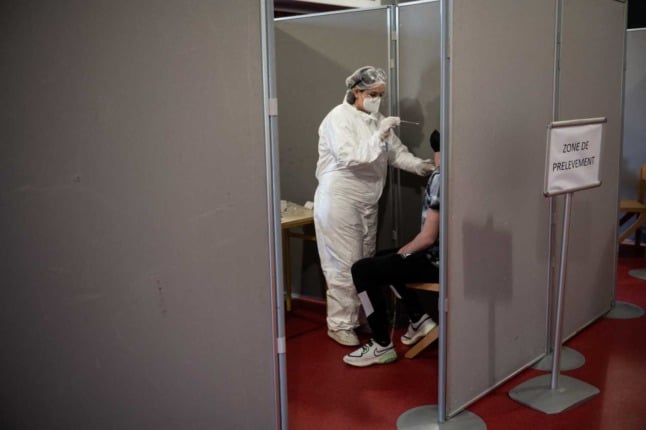If you’re visiting Switzerland you may need to present a negative Covid test at the border or in certain other situations, such as visiting larger events if you are not vaccinated.
Chances are you will also need one to return to your home country, so here’s how non-residents can get a Covid test while they are in Switzerland.
What is the situation with testing?
In late June, Switzerland decided to cover the costs of antigen tests for citizens and residents for all purposes.
Previously, anyone who got an antigen test explicitly for the purposes of travel would not have the cost covered by the government – although some Local readers have told us this was not difficult as the test provider would simply state it was for another purpose.
However, since June 26th, these costs have been borne by the government.
What about for foreigners?
The free tests are for citizens, residents and most cross-border workers – i.e. anyone with compulsory health insurance in Switzerland.
Obviously, tourists and visitors will not have compulsory Swiss insurance – but can still get a test if they are from any EU/EFTA countries.
The reason for this is the so-called joint institution, under the Health Insurance Act (KVG), which cover the costs for tourists from the EU/EFTA states for health related matters when they are in Switzerland.
The costs are then later recouped from the tourists’ home countries.
Jonas Montani, a spokesperson from the Swiss Federal Office of Public Health, confirmed this to The Local Switzerland.
“The federal government covers all costs for rapid tests performed at a test centre, by a physician, in hospitals or pharmacies (for residents and citizens).
“In the case of persons who do not have compulsory health insurance under the Federal Health Insurance Act (KVG) (i.e. tourists, for example), the joint institution is responsible under Article 18 KVG.
“This means that the service provider who carries out the analysis for Sars-CoV-2 submits the invoice to the joint institution, which then invoices the federal government on a quarterly basis.”
Montani however said that this ends at the Swiss border – whether for Swiss residents or for those heading to Switzerland and wanting a test.
“The federal government does not cover the costs of analyses for Sars-CoV-2 that are performed abroad.”
What about those from outside the EU/EFTA?
Unfortunately, for anyone from the United Kingdom, the United States and further afield, the Swiss government will not cover the costs of test.
In some cases this may require an up front fee, or in other cases you can bill it to your health or travel insurance.
UPDATE: Switzerland confirms vaccinated Americans and Brits can enter from June 26th
The Local Switzerland has heard reports from readers from abroad of having tests carried out without being required to show ID, or simply not being asked to pay.
As had happened before Switzerland made antigen testing free, some testing sites were charging the government anyway and not putting ‘travel’ as the reason.
However, this is not the norm and you may be asked to pay for your antigen test.
They can cost anywhere from CHF20 to CHF90 depending on the test centre.



 Please whitelist us to continue reading.
Please whitelist us to continue reading.
In my experience around Zurich (June 2021), the antigen test result only comes in German. And I needed French or English language certificate to cross the French border (not that I was checked).
To get a certificate in English it would be necessary to get a PCR test, which was more expensive and not covered according to the above article.
Anybody have other experiences/ knows otherwise?